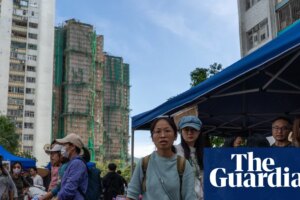
This essay is written precisely so that it could be dismissed.
—Paul Mann (1991: 141)
Gary Zhexi Zhang (2021) first coined the term ‘Sinopessimism’ as a speculative counterpart to Afropessimism, imagining a future in which China becomes the object, rather than the subject, of global racialisation. While Zhang’s usage was primarily a thought experiment, I repurpose the term here to describe a different set of conditions: the negative affects emerging in a post rapid growth China, where a society once buoyed by dreams of personal flourishing and upward mobility now finds itself increasingly disenchanted with those unfulfilled promises. There has been a paradigm shift from an earlier seemingly indubitable optimism that took root in precarious circumstances, documented in the many studies of young migrants from the 1990s to the 2010s (to name a few, Cockain 2012; Wallis 2013, 2018; Rofel and Yanagisako 2019; Pun and Qiu 2020; Xiang 2021; Hillenbrand 2023), to a newly acquired socioeconomic tempo of malaise and affective flatness. During the period of growth, young migrant workers’ investment in futurity converged with a deliberate suspension of their present hardships. In Xiang Biao’s (2021: 240) words: ‘[T]he migrants are at once resigned (“there is nothing that you can do about the current condition”) and hopeful (“things should get better in the future”).’ Xiang dubs this a ‘suspension’ (as in suspended in the air), calling to mind the precarious balancing act of tightrope walking across a fantasy. This is akin to the condition of ‘being condemned to live out their lives in a perpetual cycle of striving and frustration’ (M’Rabty 2024: 5) that was conceptualised in Lauren Berlant’s Cruel Optimism (2011). Optimism becomes cruel when it generates a desire for a good life that can never be realised.
As Lisa Richaud (2021: 903) has noted in a recent special issue of HAU on negative emotions, since the reform era there has been ‘little room for public expressions of negative affects’ in China. However, affective disengagement is by no means a novelty of the 2020s. In fact, this affective deflation has been brewing for a long time, but its practitioners were often treated as reclusive ‘noble savages’ (a metaphor sometimes used in Chinese media) via the lens of either journalistic curiosity or ethnographic peculiarity. These urban ‘hermits’ ultimately retreated from public attention because their voluntary withdrawal seemed so marginal and distant from the positive moods invigorated by continuous economic growth and improving quality of life. For instance, from the early 2000s, the internet revered the ‘gods of Sanhe’ (三和大神, with Sanhe being a Shenzhen-based human resource centre where vagabonds and migrant workers clustered to look for casual gigs) as ‘divinities’ for volunteering for a hyper-precarious lifestyle, perpetually shifting between day jobs and days spent doing nothing—that is, typically sleeping their days away and spending their nights in internet cafes (Du 2018; Tian and Lin 2020). Later, in 2016, ‘sang culture’ (丧)—a subculture of ‘despondency and defeatism’, in the words of Margaret Hillenbrand (2023)—came to public attention, as internet memes and merchandise were created to capitalise on this playful yet pessimistic outlook (Tan and Cheng 2020; Lu 2021).
However, since 2020, circulation of negative affect has grown exponentially in the Chinese public sphere in the face of state-enforced optimism and despite social sanction, if not outright punishment, of such negativity. Even Cruel Optimism, translated into Chinese in 2023, has become a cliché among artists and in para-academic circles. The concept of Sinopessimism highlights this ongoing transition to a post-optimistic society that is becoming conscious of the cruel nature of its aspirations and, more importantly, actively searching for analgesics, whether pragmatic or spiritual. The younger generations have already begun to anticipate these changes of mood: from a future-oriented ascetic culture of indefinitely deferring self-enjoyment that characterised most of the post-reform era—a mentality that is fundamental to an economy largely built on debt, real estate speculation, and psycho-political expectations of infinite growth (see Ho 2017)—to a present-oriented youth culture of hedonism, economic thrift, and utilitarian resignation. This emergent world view is forging a gap between an older generation accustomed to economic (and therefore political) optimism and a younger generation whose core coming-of-age experience is learning how to live with precarity without the prospect of better days.
Sinopessimism is a form of popular and embodied knowledge rather than academic abstraction. In this essay, I construct a ‘low theory’ of young people diagnosing societal issues—that is, ‘the intellectual worlds conjured by losers, failures, dropouts, and refuseniks’ (Halberstam 2011: 5)—and the corresponding exit strategies they propose on the Chinese-language internet. The following is a preliminary lexicon of Sinopessimism, originally envisioned and elaborated in para-academic literature from fringe (if not underground) reading groups, art collectives, seminars outside intellectually sterile university campuses, as well as internet argot, broadly circulated online inside and outside China’s digital borders.
From Involution to Lying Flat
The story begins with the term ‘involution’ (内卷 neijuan), coined by Clifford Geertz (1963) and repurposed by Xiang Biao to refer to ‘the experience of being locked in competitions that one ultimately knows is [sic] meaningless’ (Liu 2021)—another catch-all term that governs many young Chinese people’s sense of their situation. For instance, alarming symptoms such as the unsustainably low birth rate (Master 2024) and high youth unemployment (Woo and Wang 2024) are attributed to ‘involution’—a future stuck in a loop of unrewarding present competition. ‘Involution’ becomes a hackneyed synonym of despondency created by prolonged burnout, permanent austerity, and endless waiting.
In this context, tangping (躺平, literally, ‘lying flat’) becomes a pragmatic strategy to counter ‘involution’. Since the late 2010s, the disposition of precarious ‘suspension’ gradually deflated into the horizontal dimension of tangping. It is said the term first appeared in a Baidu Tieba sub-forum on misogamy (a term that refers to aversion to marriage) in 2011 but was popularised through Luo Huazhong’s post ‘Tangping is justice’ only in 2021 (Chen 2021). Tangping can be considered a pragmatic or quasi-intellectual pessimism and withdrawal from the default mentality of prioritising upward mobility. As a response to changing socioeconomic realities, tangping signifies a resignation not just from the present but also, unprecedentedly, from the future.
Against the optimistic narrative and ‘positive energy’ (正能量) (Hizi 2021) needed to sustain the sacrifice of the present for a brighter tomorrow, people are increasingly seeing through the trap of heteronormative reproductive futurity and the wealth-accumulation model that sustains it. However, tangping is a multifaceted term that is difficult to pinpoint without reproducing the political establishment’s binary of compulsory positivity and prohibited negativity. The term Sinopessimism encapsulates the affective atmosphere or mood (stimmung in the Heideggerian sense) of contemporary China. As such, it is less a uniform concept than a general heading for a cluster of various grassroots attempts to make sense of local situations.
To put it in the argot of tangpingism (Anonymous 2022), ‘flattened [garlic] chives are difficult to harvest’ (躺平的韭菜不好割)—a euphemism for the popular wisdom that ‘once you have given up working so hard, you cannot be exploited’. According to Pang Laikwan (2022), this metaphor of chives (韭菜 jiucai) points to how the regime acknowledges ‘capitalism’s effective absorption of the people’s energy in their self-thriving’ (Pang 2022: 83). In response, this new style of resignation is not simply a ‘light-hearted self-mockery’ (Zhu and Peng 2024), but also a well thought-out utilitarian strategy and recalibrated mindset of everyday life marking disenchantment with capitalism. Tangpingism can be considered a cluster of diverse but incoherently articulated ideas surrounding the affective contagions of pessimism, intellectual critiques, and concrete strategies against precarity.
Anti-Work
Tangping can be both a political position of anti-work and a pragmatic position of recalibrating expectations and plotting disengagements. As a political position, it is elucidated well in the anonymous ‘Tangpingist Manifesto’ (Anonymous 2022). This document channels an anarchist anti-work politics in its proclaimed and rather dignified ‘grand refusal’ (Coin 2025) of work (and logic of economic growth), especially in response to the ubiquitous condition of uncompensated overwork:
A radical Tangpingism marks a complete rejection of the current order. The Tangpingists make a merciless mockery of institutional inclusion, and are indifferent to any kind of praise or criticism … [T]he one who lies flat is standing, and the one who stands is crawling. (Anonymous 2022)
Tangpingism refuses to be coopted by any prior political positions. Instead, tangpingism is ‘a philosophical and political subject pertaining to the universal issue of our relation to the concept of work’ (Brossard 2023). The concept of work or questioning the meaningfulness of work is core to discussions of tangpingism. Here, I will not repeat the philosophical discussions from ‘the right to be lazy’ (懒汉权) or post work. Xu Zhiwei and Wang Xingkun’s (2022) timely edited volume of translations Post-Work Theory already did the heavy lifting of introducing to a Chinese audience the intellectual history of anti-work—predominantly left-wing critiques of capitalism and labour.
Instead, I want to contribute to the discussion by adding my own observation of tangping as a case of negative utilitarianism. This position is tacitly apolitical and aims not at societal changes but at reducing suffering. Anti-work can also manifest as ‘anesthetising force’ (Seresin 2019), which in fact prevents social change—a point we should not miss while prematurely framing tangping as a politics of radical alterity. Anti-work can also be seen as an individual choice in response to a society hostile to indolence. The utilitarianist and realist practitioners of indolence oppose work but crucially acknowledge the social consequences of their stance, including stigma and drawbacks. They would ridicule the leftists for being too naive for wanting anti-work to be recognised by the political establishment. Instead, they argue one might as well embrace self-marginalisation as a form of self-healing. To quote the preface written by novelist Cao Kou in Wei Sixiao’s Melancholy of Small-Town Youth: 18 Ways to Die (2016: 5–6; my translation):
‘Why don’t you go find a job’ is more depressing than ‘why don’t you go to work’. The former stops before finding a job, he has nothing to rely on, and anything about his talents or capability outside of secular work remains uncertain. The latter seems to have some leverage to act on impulses, in a psychological state in which he can find a job, but he does not want to. Tortured by poverty but not necessarily leading to a depressive state, there is a certain kind of joy and happiness that pushes him on.
This refusal to work is exercised from the perspective of a realist looking for distractions rather than an unhinged radical who aspires to shake up the status quo. It is neither a literal escape (as in the case of runology—a concept that I will unpack later) nor sublimation in imagination. It must be emphasised that the negativity in the above discussions of exit strategies is not necessarily a depressive attitude but a certain kind of pleasurable negation of the purposeful or meaningful life dictated by the sociopolitical mainstream—a ‘joyful pessimism’ (Frederiksen 2017) embraced by ‘junkies of futility’ (Shipley 2021). These exit strategies are no longer the barely keeping one’s head clear while ‘treading water’ described by Berlant, but a pleasurable immersion in the social fact of ‘breathing under the water’ (Frederiksen 2017: 18).
Doing nothing never really suggests that nothing happens. When one’s behaviour (for instance, wasting a day doom-scrolling on the phone while staying in bed) is vilified as ‘nothing’, it is almost always a result of a specific structure of normativity that equates work with value and moral worth. This is where Sinopessimism can be a theory of a good life after one forsakes the conventional meanings of ‘good life’ and ‘purposeful being’ (Hage 2013).
Heteropessimism
The phrase ‘We are the last generation’ (Bram 2023)—a calm yet defiant response during a Covid-19 lockdown to a police threat that disobedience would harm future generations—has come to embody the disillusionment of a generation. What began as a rejection of state intimidation has since become a powerful symbol of broader anxieties about the future and a refusal to participate in it. It is not simply a pre-emptive rejection of the hopelessness future generations will face because of the continuation of the status quo, but a pragmatic choice to minimise suffering here and now in this generation. As observed in the misogamous origin of tangping on Baidu Tieba, a collective, pragmatic disavowal of reproductive futurism has taken hold, marked by anti-natalism and ‘heteropessimism’ (Seresin 2019)—a widely shared sentiment that heterosexuality has become irredeemable. This disavowal is not necessarily ‘performative’, as shown by both low birth rates and the recently reported ‘recession of sex’ (Chen, J. 2024) among the young as shown in survey data. What is more indisputable than the ever more elusive demographic data is the ordinary observation of an unrelenting and fatalistic pessimism about heterosexual relationships on the internet and in everyday interactions.
This withdrawal from heterosexual relationships appears to be reciprocal, with both women and men increasingly opting out, albeit for different reasons. More women have voluntarily opted out of heteronormative conceptions of the ‘good life’, citing the malignant patriarchy and unequal distribution of and compensation for labour both at work and at home, among other reasons. On the male side, the libidinal economy spearheaded by desperate ‘simps’ (internet slang for someone who is in pursuit of affection from someone who does not reciprocate) or tiangou (舔狗, in the Chinese internet argot) has also gone into a downward spiral. Confronted with formidable dowry prices, financial expectations, and, above all, emotional uncertainties, battalions of tiangou are finding solidarity in their collective confessions of ‘the quotidian experience of romantic harm as evidence of a global female conspiracy’ (Seresin 2019).
The suicide of Liu Jie (better known as ‘Fat Cat’, 肥猫) following a breakup with his then girlfriend Tan is now characteristically remembered as a pivotal event in a national male ‘awakening’ (Koetse 2024). The initial controversy was raised by Liu’s sister, who reported Tan for alleged ‘financial scams’. Liu initially met Tan via the mobile game Honor of Kings in 2021 and started a long-distance relationship with her before moving to Chongqing to be with her in 2023. Throughout this relationship, Liu gifted money to Tan multiple times, even right before his suicide on 11 April 2024. The news of his suicide and the backstory told from the perspective of Liu’s sister sparked a wildfire of ‘incel’ (‘involuntarily celibate’) outrage and solidarity against the financial distress and emotional damage of unreciprocated romance. This outrage marked a collective abdication of heterosexuality, which came to be seen as a socioeconomic and affective trap. Netizens ordered thousands of meals, drinks, and flowers to be delivered to the Chongqing bridge from which Liu Jie leaped to his death. Shortly after, memes about the transition from incel to ‘volcel’ (‘voluntarily celibate’) proliferated on the internet, as have viral videos preaching misogamy among lower-class men on Kuaishou: ‘As I stop being obsessed with mortgage and procreation, I can totally live freely with my CNY3,000 monthly salary.’ After all, it is not a difficult decision to stay perpetually single.
Runology
‘Runology’ or runxue (润学, a neologism that literally means ‘studies’ of how to run away from China) is another systemic effort of coping: rationalising outbound migration as a solution to domestic issues within China. There is a GitHub page dedicated to the ‘comprehensive philosophy and methodologies’ of runxue (GitHub n.d.). While runxue certainly fits into hundreds of years of history of outmigration from China framed in narratives of hope, its latest manifestation can be seen as politically militant or at least pessimistic. The diagnosis provided by runxue arrived at a profound despair: hope is relegated to an imagined Outside that has ‘been founded upon different principles and operated under a different order’ (Ligotti 2008: 48).
In this sense, apart from being a practical guide to different pathways of (il)legal migration, runxue is not simply a negative, pessimist disavowal of one’s home country and the conventional life there, but also a positive, optimistic, or even utopian hope for a meaningful escape. For example, in the past three years, there were waves of undocumented Chinese migration into the United States from across Latin and Central America, often dubbed as zouxian (走线) or, literally, the ‘walking line/route’ (Dong 2022). It remains to be seen whether the hopes of this track of runology will survive Donald Trump’s second-term presidency and his executive orders for mass deportation.
To connect runxue to a case of literary misanthropy, the protagonist Ye Wenjie in Liu Cixin’s Three-Body Problem (2014) was so traumatised by the Cultural Revolution that she turned to the Outside of an unknown alien species as a better alternative. The deadlock of runxue is rooted in the ‘naivety’ of such hope: what if there were no such place on the Outside? Runology dwells on the same centuries-old presumption of the diasporic condition: will resigning from the conventional Chinese life (steeped in deeply rooted patriarchy, toxic kinship and workplaces, ordinary sexism, and so forth) guarantee a meaningful new life (Coates 2019)? Perhaps the terminal end of runology is not flight, but escaping further into the system (体制)—hence the nationwide craze for civil servant exams (Chen, L. 2024) or internal migration back to the rustbelt such as Hegang (Zhang and Tang 2024) or the idyllic countryside (Cai 2024).
A Low Theory for the Global Undercommons
The ‘Tangpingist Manifesto’ initially gained traction internationally with its English and Japanese translations, introduced by the Japanese activist Hajime Matsumoto. In 2022, Dandu (单读), one of the most influential contemporary cultural magazines and a publisher based in Beijing, organised a reading group in which the general public was invited to participate. The manifesto was featured on its reading list (Dandu 2022), along with Bob Black’s The Abolition of Work (1986), David Graeber’s Bullshit Jobs (2018), and Fernando Pessoa’s The Book of Disquiet (2017). This group attempted to address the lingering critique of tangping as impractical and unlikely to become anything more than an empty signifier floating in public discourse. If ‘involution’ remains the underlying social structure, is tangping merely lying down on top of it?
This reading group can also be considered an attempt at a low theory coming directly from the ‘undercommons’ (Harney and Moten 2013): the ‘ungovernable realm of social life’ where the marginal populations themselves produce meanings with each other (Ngin 2020). The undercommons is an intellectual underground that centres on ‘refusal’ and ‘absence of a plan’ rather than a traditional modality of critique. The variety of these proposed readings covered in the reading group underscores how tangpingism must be defined, historicised, and relativised in reference to other existing cultural theories from the global undercommons. In fact, Sinopessimism is not alone in aligning with the lethargic disengagements of post-optimism. Following what Brossard (2023) proposes, the lexicon of Sinopessimism recognises the cross-cultural resonances that help situate youth resignation in a constellation of related concepts from other sociolinguistic contexts. For example, tangpingism includes six tenets:
(1) Do not buy any housing.
(2) Do not buy cars.
(3) Do not get married.
(4) Do not buy material things.
(5) Maintain the lowest possible standard of living.
(6) Refuse to become money-making machines exploited by others (Ye 2021).
This sounds awfully familiar to the Korean ‘N-po generation’ stemming from Sampo Sedae (‘Three giving-up generation’). Many young South Koreans feel that certain milestones once seen as guaranteed in previous generations are now out of reach:
(1) courtship
(2) marriage
(3) childbirth
Extending to Opo Sedae (‘Five giving-up generation’):
(4) homeownership
(5) interpersonal relationships (Wikipedia n.d.; Lee 2023).
This list goes on and on as more milestones are to be given up, hence the N-po Generation. As the Korean pop idol group BTS pleads in their 2018 song Paradise, ‘It’s okay to not have a dream’. If tangping falls upon a generational narrative as suggested earlier, it is certainly in parallel, if not directly related, to Korea’s Sampo Generation and Japan’s Satori Generation (literally, the ‘Buddhist enlightened generation’, referring to a mental state in which one is free from material desires and ambition). But this curse of affective deflation is not limited to East Asia. In observing what he dubs a ‘psycho-deflation’, Franco ‘Bifo’ Berardi (2022) calls for more serious research on the ‘widespread rejection of work, consumption, and procreation’ in Europe and around the world in the ongoing wave of the ‘Great Resignation’ (Coin 2025). China is in fact one of the latest members to join this global club of post-growth impasse. We are, fortunately or not, all in this together.
From Sinofuturism to Sinopessimism
Another opportunity of this connection with the global under-commons is Afro-pessimism. In fact, the coinage of Sinopessimism by Zhang (2021) was inspired by Afro-pessimism (Wilderson III 2020). However, this connection is not in the sense of equating anti-Blackness and anti-Chinese-ness; in fact, Chinese people have widely participated in the global politics of anti-Blackness (Huang 2024). The above lexicon of Sinopessimism is my attempt at appropriating the term to contextualise the specific nexus of pessimist thought, affects, and attitudes that emerged in China about the past, present, and future. These pessimistic thoughts, while not a reflection on racism, do contemplate the historical, structural, and ontological conditions of a nation, as I will elaborate in the following.
Sinopessimism is the ideational obverse to Sinofuturism; the latter is speculative if not delusional, the former is fatalistic but utilitarian. Sinopessimism thus emerges as a pharmakon—a substance blurring the opposition of poison and remedy—of its own. The terminal pessimism seems irredeemable, but its pragmatism also potentially remedies the flaws of Sinofuturism. As Gabriele de Seta (2020: 91) critiqued the ‘denial of coevalness’ in the disposition of Sinofuturism as a form of ‘reverse orientalism’, Sinofuturism ‘deploys the future as a way of deferring participation in contemporariness’. In response, Gary Zhexi Zhang (2021) argues for a Sinopessimism that ‘offers the terms of refusal of the modernist frameworks for those who have been denied the present’. Sinopessimism therefore potentially offers a way out of this denial imposed by the linear discourse of modernisation—at best an alternative to the Western model of modernisation (which seems rather utopian at this point, even on its own terms) or, at the very least, a refusal of that model or an exit, even if this exit is just as agonising.
Sinopessimism feasts upon the self-inflicted agony of flat refusal. As M’Rabty (2024: 47) writes: ‘[W]hen a subject cannot change, challenge or attack the external of their angst and ire, they may instead choose to attack or enact a self-defeating/self-destructive change in themselves.’ In the case of Sinopessimism, this ‘subject’ most often manifests as the self-destructive essentialism of Chinese-ness. We can argue that Chinese-ness has been regarded as the transhistorical structuring force of the Sinophone world since the Republican era. As a subject of perpetual scrutiny, the ‘ontological depravity’ of Chinese-ness is no stranger to Chinese-language cultural theory. In fact, Chinese-ness is a case of navel-gazing and self-abnegating introspection: the project of Chinese-ness is a matter of both a positivistic need to construct ‘a persistent imagination of an unbroken historical continuity’ (Chun 1996: 113) and a pessimistic pathology of ‘what is fundamentally wrong with the category of Chinese-ness’ under the banner of a ‘national psychology’. For example, the fact that Gustave Le Bon’s 1895 ‘crowd psychology’ has been an enduring bestseller for decades in China under the translated title The Rabble Grouped Like Ravens (乌合之众) really illustrates the obsession with a pathological self-diagnosis of Chinese-ness as a collectivity. The negation of Chinese-ness (for example, via assimilation to modernity) was—and is now again, at least among those who self-exiled in the subreddits and to the destinations of runology—seen as a recovery of humanity itself.
‘Self-loathing and braggadocio’, according to William A. Callahan (2009: 9), are ‘interwoven, separated only by a fine line and can easily trade places’. As Bo Yang (1985, cited in Barmé 2019) puts it: ‘[O]n his inferiority, a Chinese person is a slave; in his arrogance, he is a tyrant. Rarely does he or she have a healthy sense of self-respect.’ China is therefore a ‘pessoptimist nation’ as its national aesthetic ‘entails the combination of a superiority complex and an inferiority complex’ (Callahan 2009: 9). On the pessimistic side, the ontological conundrum of Chinese-ness has emerged through convoluted and high-profile debates about the rubric of ‘national/ethnic character’ (Sun 2002) since more than a century ago—from the ‘Sick Man of East Asia’ in 1896 (Lei 2022) as ‘a self-deprecating warning about the uncertain future of China itself’ (Barmé 2019), Lu Xun’s 1922 The True Story of Ah Q, to the ‘blighted roots’ and ‘inferiority complex’ of The Ugly Chinaman (Bo 1985), Wu Zhihong’s (2016) claim that the ‘majority of Chinese people are man-child’, and Liu Cixin’s (2014) ‘Dark Forest Hypothesis’ as a form of cosmic pessimism rooted in the traumas of the Cultural Revolution.
Xiang Biao (2021) revisited this rubric in a recent interview:
I believe that exactly when a society truly loses its direction, grand narratives prevail … Grand narratives tend to obscure many real contradictions and difficulties because the direction in discourse differs greatly from the sense of direction in individual lives … In my upbringing, many people say that Lu Xun’s The True Story of Ah Q and The Ugly Chinaman are similar, both addressing the inferior roots of the nation. However, I believe their essence is different. The Ugly Chinaman can be seen as a grand narrative with significant judgements within it; however, Lu Xun’s account is a highly personalised experience. He was seeking a sense of vitality in Ah Q, as an individual full of various fantasies and disillusionments. This is what truly provides a sense of direction, not necessarily about how history will unfold, but about how we as individuals can preserve strength and face the darkness with a sense of direction. (My translation.)
The weight of such pessimism is certainly buoyed by the state-prescribed compulsory optimism of the past decades—for example, in the social aesthetics of ‘positive energy’ (Richaud 2021) and, more recently, ‘cultural confidence’ (文化自信). Such mandatory optimism manifested not just in unreciprocated propaganda or frantic ethno-nationalism. This optimism has also taken root among the public through rationalising the unrealistic expectation of infinite economic growth in the past three decades. However, when optimism is flatlined by shuttered hopes of real estate markets and a skyrocketing unemployment rate, this recession may end up resuscitating the pessimistic undercurrents of ‘national character’ among the masses themselves.
Living in the Garbage Time of History
In assembling a lexicon of Sinopessimism as circulated on the Chinese internet, this essay does not frame it as an ethnic or national specificity but rather contextualises this collective disavowal. Most of the surveyed issues on labour, gender, and migration are global in scope but they are also channelled through specific histories, languages, mediums, epistemologies, and, most importantly, a local grassroots politics of living in the present. Hu Wenhui (2024) uses the phrase ‘garbage time of history’ (历史的垃圾时间) to describe ‘the period when a nation or system is no longer viable’, yet it lingers, and ‘any attempt to struggle against it is futile’ (Boyd 2024).
While the example Hu discussed was the Soviet Union in the Gorbachev era, Chinese netizens readily interpreted it as an allusion to contemporary China, which led to the essay’s subsequent censorship (Hawkins 2024). However, the ensuing controversy regarding the ‘garbage time of history’ largely missed the other half of Hu Wenhui’s point, which was that, since
the development of history and the development of culture are often not aligned, and the end of a culture often lags behind its respective historical progression. That is why, when history enters garbage time, culture will be able to take a long holiday. (Hu 2024)
Hu’s reference to culture and its relative autonomy from history qua development in an economic or social sense points to a sense of individual agency or a ‘direction’ exceeding historical determination: ‘[H]istory will always have garbage time—but our lives don’t’ (Hu 2024).
Acknowledgements
The author would like to thank the editors and reviewers of the journal for their valuable feedback as well as Gabriele de Seta and Patrick Harrison for thoughtful comments. This research was supported by a grant from the Research Grants Council of the Hong Kong Special Administrative Region (Project No. 21607523).
Featured Image: Abandoned swing set, @mlhradio, Flickr.com (CC).
References
Anonymous. 2022. ‘Tangpingist Manifesto.’ The Anarchist Library. theanarchistlibrary.org/library/anonymous-tangpingist-manifesto.
Barmé, Geremie R. 2019. ‘China, The Man-Child of Asia.’ China Heritage, 26 September. chinaheritage.net/journal/china-the-man-child-of-asia.
Berardi, Franco ‘Bifo’. 2022. ‘Resign.’ E-Flux Journal 124. www.e-flux.com/journal/124/443422/resign.
Berlant, Lauren. 2011. Cruel Optimism. Durham, NC: Duke University Press.
Black, Bob. 1986. The Abolition of Work. Port Townsend, WA: Loompanics.
Bo, Yang 柏楊. 1985. 醜陋的中國人 [The Ugly Chinaman]. Taiwan: Linbai Publishing.
Boyd, Alexander. 2024. ‘Word of the Week: Garbage Time of History (历史的垃圾时间, Lìshǐ de Lājī Shíjiān).’ China Digital Times, 2 August. chinadigitaltimes.net/2024/08/word-of-the-week-garbage-time-of-history-历史的垃圾时间-lishi-de-laji-shijian.
Bram, Barclay. 2023. The Last Generation: Why China’s Youth Are Deciding Against Having Children. Report, 10 January. New York, NY: Asia Society. asiasociety.org/policy-institute/last-generation-why-chinas-youth-are-deciding-against-having-children.
Brossard, Marine. 2023. ‘Lying Flat: Profiling the Tangping Attitude.’ Made in China Journal 7(2): 50–63.
Cai, Jenny. 2024. ‘Meet the Chinese Youth Going from the Cities to the Countryside.’ ABC News, 7 October. www.abc.net.au/news/2024-10-07/china-youth-rural-to-urban-migration-rural-revitalisation/104364052.
Callahan, William A. 2009. China: The Pessoptimist Nation. Oxford, UK: Oxford University Press.
Chen, Elsie. 2021. ‘These Chinese Millennials Are “Chilling,” and Beijing Isn’t Happy.’ The New York Times, 3 July. www.nytimes.com/2021/07/03/world/asia/china-slackers-tangping.html.
Chen, Jing 陈婧. 2024. ‘“性萧条”背后的经济账 [The Economics of “Sex Recession”].’ 联合早报 [Lianhe Zaobao], 21 December. www.zaobao.com/news/china/story20241221-5627409.
Chen, Laurie. 2024. ‘Chinese Youth Flock to Civil Service, but Slow Economy Puts “Iron Rice Bowl” Jobs at Risk.’ Reuters, 30 December. www.reuters.com/world/china/chinese-youth-flock-civil-service-slow-economy-puts-iron-rice-bowl-jobs-risk-2024-12-30.
Chun, Allen. 1996. ‘Fuck Chineseness: On the Ambiguities of Ethnicity as Culture as Identity.’ Boundary 2 23(2): 111–38.
Coates, Jamie. 2019. ‘The Cruel Optimism of Mobility: Aspiration, Belonging, and the “Good Life” among Transnational Chinese Migrants in Tokyo.’ positions: asia critique 27(3): 469–97.
Cockain, Alex. 2012. Young Chinese in Urban China. London: Routledge.
Coin, Francesca. 2025. The Great Resignation: The New Refusal of Work. London: Bloomsbury Academic.
Dandu. 2022. ‘谁此刻躺平,就永远躺平 | 来参加躺平朗读夜吧 [Whoever Is Lying Flat Now Will Lie Flat Forever; Come Join the Reading Group of Tangping]!’ 单读 [Dandu], 28 May. https://tinyurl.com/2smd9z9
de Seta, Gabriele. 2020. ‘Sinofuturism as Inverse Orientalism: China’s Future and the Denial of Coevalness.’ SFRA Review 50(2–3): 86–94.
Dong, Mengyu. 2022. ‘Fleeing China’s Covid Lockdowns for the US—Through a Central American Jungle.’ BBC, 22 December. www.bbc.com/news/world-us-canada-64008633.
Du, Qiang. 2018. ‘The Vagabond Club.’ True Story Award website. truestoryaward.org/story/57.
Frederiksen, Martin Demant. 2017. ‘Joyful Pessimism: Marginality, Disengagement, and the Doing of Nothing.’ Focaal (78): 9–22.
Geertz, Clifford. 1963. Agricultural Involution: The Processes of Ecological Change in Indonesia. Berkeley, CA: University of California Press.
GitHub. n.d. The Run Philosophy. github.com/The-Run-Philosophy-Organization/run.
Graeber, David. 2018. Bullshit Jobs: A Theory. New York, NY: Simon & Schuster.
Hage, Ghassan. 2013. ‘Eavesdropping on Bourdieu’s Philosophers.’ Thesis Eleven 114(1): 76–93.
Halberstam, Jack. 2011. The Queer Art of Failure. Durham, NC: Duke University Press.
Harney, Stefano, and Fred Moten. 2013. The Undercommons: Fugitive Planning & Black Study. London: Minor Compositions.
Hawkins, Amy. 2024. ‘“Garbage Time of History”: Chinese State Media Pushes Back on Claims Country Has Entered a New Epoch.’ The Guardian, 18 July. www.theguardian.com/world/article/2024/jul/18/garbage-time-of-history-chinese-state-media-seeks-to-shut-down-claims-country-has-entered-a-new-epoch.
Hillenbrand, Margaret. 2023. On the Edge: Feeling Precarious in China. New York, NY: Columbia University Press.
Hizi, Gil. 2021. ‘Zheng Nengliang and Pedagogies of Affect in Contemporary China.’ Social Analysis 65(1): 23–43.
Ho, Cheuk-Yuet. 2017. ‘Affective Housing Ownership in China’s New Property Regime.’ The Asia Pacific Journal of Anthropology 18(1): 73–86.
Hu, Wenhui. 2024. ‘Garbage Time of History, A Long Holiday for Culture.’ China Digital Times, 31 July. chinadigitaltimes.net/chinese/710179.html.
Huang, Mingwei. 2024. ‘The Globality of Antiblackness.’ Made in China Journal 9(1): 150–55.
Koetse, Manya. 2024. ‘The Tragic Story of “Fat Cat”: How a Chinese Gamer’s Suicide Went Viral.’ What’s on Weibo, 9 May. www.whatsnweibo.com/the-tragic-story-of-fat-cat-how-a-chinese-gamers-suicide-went-viral.
Le Bon, Gustave. 2002 [1895]. The Crowd. Mineola, NY: Dover Publications.
Lee, Min Joo. 2023. ‘South Korea’s “N-Po Generation” of Millennials Have “Given Up” and Its Feminist 4B Movement Is Refusing to Date, Marry or Have Kids.’ Fortune, 15 May. fortune.com/2023/05/15/south-korea-millennial-npo-generation-given-up-4b-movement-women.
Lei, Jun. 2022. ‘Colonial Stereotypes and Martialized Intellectual Masculinity in Late Qing and Early Republican China.’ Modern China 48(2): 420–54.
Ligotti, Thomas. 2008. Teatro Grottesco. London: Virgin Books.
Liu, Cixin. 2014. The Three-Body Problem. Translated by Ken Liu. New York, NY: Tor Books.
Liu, Yi-Ling. 2021. ‘China’s “Involuted” Generation.’ The New Yorker, 14 May. www.newyorker.com/culture/cultural-comment/chinas-involuted-generation.
Lu, Xiaoning. 2021. ‘Sang Culture: How a Reluctant Russian Singer Became the Hero of Young Pessimists across China.’ The Conversation, 30 April. theconversation.com/sang-culture-how-a-reluctant-russian-singer-became-the-hero-of-young-pessimists-across-china-160080.
Lu, Xun. 2003. The True Story of Ah Q. Translated by Yang Xianyi and Gladys Yang. Hong Kong: The Chinese University of Hong Kong Press.
Mann, Paul. 1991. The Theory-Death of the Avant-Garde. Bloomington, IN: Indiana University Press.
Master, Farah. 2024. ‘China’s Population Drops for Second Year, with Record Low Birth Rate.’ Reuters, 17 January. www.reuters.com/world/china/chinas-population-drops-2nd-year-raises-long-term-growth-concerns-2024-01-17.
M’Rabty, Rachid. 2024. Disconsolate Dreamers: On Pessimism and Utopia. Alresford, UK: Zer0 Books.
Ngin, Zach. 2020. ‘Flights of Fantasy on Fred Moten and Stefano Harney’s Undercommons.’ The Indy, 14 February. www.theindy.org/1878.
Ortner, Sherry B. 2016. ‘Dark Anthropology and Its Others: Theory Since the Eighties.’ HAU: Journal of Ethnographic Theory 6(1): 47–73.
Pang, Laikwan. 2022. ‘China’s Post-Socialist Governmentality and the Garlic Chives Meme: Economic Sovereignty and Biopolitical Subjects.’ Theory, Culture & Society 39(1): 81–100.
Pessoa, Fernando. 2017. The Book of Disquiet. Translated by Margaret Jull Costa. London: Serpent’s Tail.
Pun, Ngai, and Jack Qiu. 2020. ‘“Emotional Authoritarianism”: State, Education and the Mobile Working-Class Subjects.’ Mobilities 15(4): 620–34.
Richaud, Lisa. 2021. ‘Introduction: The Politics of Negative Affects in Post-Reform China.’ HAU: Journal of Ethnographic Theory 11(3): 901–14.
Rofel, Lisa, and Sylvia J. Yanagisako. 2019. Fabricating Transnational Capitalism: A Collaborative Ethnography of Italian-Chinese Global Fashion. Durham, NC: Duke University Press.
Schmitt, Mark. 2023. Spectres of Pessimism: A Cultural Logic of the Worst. London: Palgrave Macmillan.
Seresin, Asa. 2019. ‘On Heteropessimism.’ The New Inquiry, 9 October. thenewinquiry.com/on-heteropessimism.
Shipley, Gary J. 2021. On the Verge of Nothing: Pessimism’s Impossible Beyond. Charleston, WV: Nine-Banded Books.
Sun, Lung-kee. 2002. The Chinese National Character: From Nationhood to Individuality. New York, NY: M.E. Sharpe.
Tan, K. Cohen, and Shuxin Cheng. 2020. ‘Sang Subculture in Post-Reform China.’ Global Media and China 5(1): 86–99.
Tian, Feng 田丰, and Kaixuan Lin 林凯玄. 2020. 岂不怀归: 三和青年调查 [How Could They Not Long to Return: An Investigation into the Sanhe Youth]. Beijing: Dolphin Press.
Wallis, Cara. 2013. Technomobility in China: Young Migrant Women and Mobile Phones. New York, NY: NYU Press.
Wallis, Cara. 2018. ‘Domestic Workers and the Affective Dimensions of Communicative Empowerment.’ Communication, Culture and Critique 11(2): 213–30.
Wei, Sixiao 魏思孝. 2016. 小镇忧郁青年的十八种死法 [The Melancholy of Small-Town Youth: 18 Ways to Die]. Shanghai: Shanghai Wenyi Chubanshe.
Wilderson III, Frank B. 2020. Afropessimism. New York, NY: Liveright.
Wikipedia. N.d. ‘N-po generation.’ Wikipedia. en.wikipedia.org/wiki/N-po_generation.
Woo, Ryan, and Ethan Wang. 2024. ‘China’s Rising Youth Unemployment Breeds New Working Class: “Rotten-Tail Kids”.’ Reuters, 21 August. www.reuters.com/world/china/rotten-tail-kids-chinas-rising-youth-unemployment-breeds-new-working-class-2024-08-21.
Wu, Zhihong 武志红. 2016.巨婴国 [Nation of Giant Babies]. Hangzhou: Zhejiang Renmin Chubanshe.
Xiang, Biao. 2021. ‘Suspension: Seeking Agency for Change in the Hypermobile World.’ Pacific Affairs 94(2): 233–50.
Xu, Zhiwei 徐志伟, and Wang Xinkun 王行坤. 2022. “后工作”理论 [Post-Work Theory]. Shanghai: Huadong Shifan Daxue Chubanshe.
Ye, Kai. 2021. ‘“Lying Flat” Is the New Resistance Movement to Materialism.’ Caixin Global, 5 June. www.caixinglobal.com/2021-06-05/weekend-long-read-lying-flat-is-the-new-resistance-movement-to-materialism-101723053.html.
Zhang, Dino Ge, and Siyu Tang. 2024. ‘Spatio-Temporality of Real Estate in China’s Rust Belt.’ Paper presented at the 2024 conference of the European Association of Social Anthropologists, Barcelona, July. nomadit.co.uk/conference/easa2024/paper/79840.
Zhang, Gary Zhexi. 2021. ‘Sinofuturism and Its Uses: Contemporary Art and Diasporic Desire.’ Verge: Studies in Global Asias 7(2): 86–92.
Zhu, Ying, and Junqi Peng. 2024. ‘From Diaosi to Sang to Tangping: The Chinese DST Youth Subculture Online.’ Global Storytelling: Journal of Digital and Moving Images 3(2): 2.





